This story is part seven of Boardroom’s Women’s History Month series highlighting bold figures forging distinctive paths in the worlds of sports, business, culture, and entertainment.
Part I: Morgan DeBaun | Part II: Valentina Shevchenko | Part III: Dany Garcia |
Part IV: Gina Prince-Bythewood | Part V: Carla Banks-Waddles | Part VI: Monica McNutt
From hosting Amazon Music’s latest “Rotation” series to VH1’s Black Girl Beauty, Peppers is a glistening force in entertainment journalism.
The DMV’s landscape in the 90s was a sublime tableau where Black excellence seemed to ascend with the sun. Black women were a standard of affluence with sitcomesque lives: loving husbands and children. They were also gleaming emblems of perseverance as they bustled onto buses, headed to their children’s school stops and work. Despite the swinging pendulum, excellence was an omnipresent reminder.
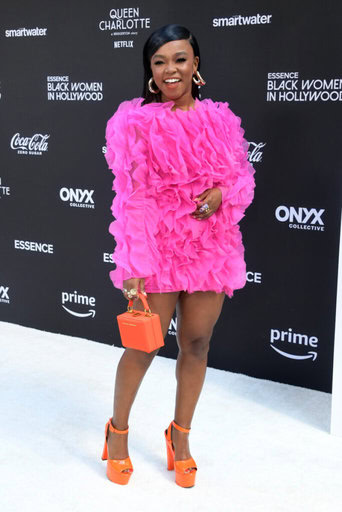
In that glorious heyday for the metropolis, where the reality for Black people resists the American imagination, relentless faith was a birthright and dreamers like Gia Peppers were born. “Everywhere you looked there were Black people and that changed my whole life in many ways,” Peppers tells me over the phone, in reverie.
Her childhood — which spanned across Washington, D.C. and Prince George’s County, Maryland (also known as PG County) — made her career as a self-proclaimed dreamer feel tangible as a young Black woman. When your father was a Black producer at NPR, your mother is a Black dentist and Howard University alumna, and you’ve only ever had a Black doctor, becoming a force in entertainment isn’t possibly unrealistic.
“I was exposed to every type of Black person life could imagine and essentially loved to be surrounded by people who looked like me,” Peppers continues. “I felt like I could be anything and do anything. I wasn’t afraid of that reality. I also knew that life was very hard for Black people in this country.”
Today, Peppers’ ambitions have reified into reality. From being an in-arena courtside personality for her hometown’s Washington Wizards and hosting VH1’s limited series Black Girl Beauty to contributing on the Today Show and signing on as host and executive producer of Urban One’s podcast “More Than That with Gia Peppers” following her role as one of five podcasters on “Black Girl Podcast” featuring cultural curator Scottie Beam, she’s forged a path for Black women to limitlessly exist in entertainment. The trailblaze is one she still attributes to the warmth of her community.
For Black Women, By Black Women
Surviving in mainstream media is distinctively hard and Black women have long witnessed the industry from its underbelly. Peppers isn’t blind to the fissures of racism and sexism, but she’s been fortunate to maneuver with a certain privilege.
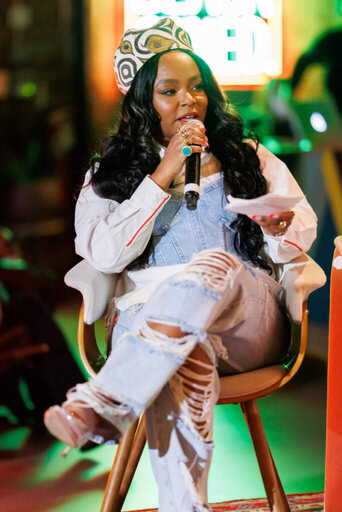
“What’s dope about my career and my journey so far is that I have come up in a lot of Black-owned and Black media spaces, so I was able to almost have a certain safety net around how I perceive the mainstream media space,” she says. Much of her resume boasts projects centered on her community, like hosting BET’s Black Coffee digital series alongside TheGrio personality, author, and activist Marc Lamont Hill and former Cocoa Butter personality and creative director Jameer Pond, and positions in powerhouse publications like Essence, Billboard, and Complex.
Being enthralled in storytelling for Black people may seem like a perk, but in a sociopolitical climate where fever pitches feel annual, it’s a blessed rarity.
“I can say that when George Floyd was killed and I was in a meeting the next day, I did not have to hide my pain,” Peppers says. For the multimedia journalist, it’s a liberty to not have to compartmentalize her personhood, her purpose, and her pain. “When Sandra Bland was killed and I came to set, I didn’t have to explain to someone why my heart was in pieces at that time.”
The cathartic emotions woven into the identity of Black women, however, stay with her as she’s tapped for mainstream platforms that don’t necessarily prioritize diverse audiences. “I do understand now, in these 10 years of my career, that I am not coming as one,” she says.
The philosophy comes from Dr. Maya Angelou’s “I come as one but I stand as 10,000.” The quote is the sort’ve cultural memorandum that reminds Black women of their foremothers and their position to bear opportunities for those to come.
At the inception of Peppers’ career, her male co-workers remained honest with their salaries doubly trumped hers. “I don’t know where we got the half-off price in the workplace where nine times out of ten, we do the majority of the work that pushes things forward.”
According to the U.S. Department of Labor 2021 data, Black women earn 63 cents for every dollar earned by their white, non-Hispanic male counterparts. The staggering statistic persists but Peppers hasn’t distanced herself from her responsibility to support incoming Black women in her field.
“When I meet other Black women, I say ‘This is what I made, this is what you should ask for and then some.’”
A Blueprint Built On Transparency
In 2016, Peppers proved yet again her capability to craft blueprints for both her generation and her successors.
While working at HOT 97, radio giant Ebro Darden planted the seed for how she and her co-workers-slash-homegirls’ penchant for compelling conversations could easily convert into a podcast. Shortly after, Peppers, Rebecca “Bex” Francois, Sapphira Martin, Alysha Pamphile, and Scottie Beam created the insanely popular Black Girl Pod. “No one was really podcasting [with large casts]. We started all of it,” she admits in hindsight.
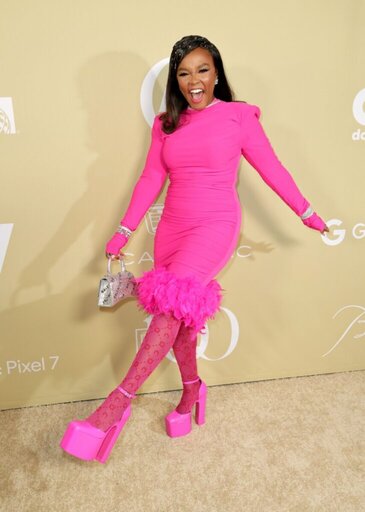
Each episode landed like a storied coming-of-age tale of how Peppers’ generation of Black women could indeed exist in their fullness. From sex to spirituality, there were no filtered conversations or generational impulses to quiet their voices to appease anyone.
“It was one of the first, if not the first, Black girl spaces and we made it so that black women could have a space to have any type of conversation,” Peppers says. “Now, to see how many women are podcasting brings me so much joy because, for a long time, it was just us.”
If you didn’t stumble upon the podcast on their Instagram, which amassed 38.2k followers, it still was almost impossible to evade its sprawling reach. Episodes were shared with young girls like family heirlooms of guidance, sent to friends for wisdom, and downloaded as articulations of the words you’ve always wanted to scribe into your diary. Outside of their podcast, they carved a community where listeners joined them for virtual Netflix watch parties, Instagram live interviews with industry giants, and live shows at Essence Festival of Culture.
“I think we left a blueprint of how to feel safe even when you don’t think you’re safe and how to move even when you feel alone,” she says. In all its glory, Black Girl Pod is an indelible audio scrapbook for generations to come.
The Art Of Recovery
“I look at the game of basketball as a way of life,” Peppers says. In 2014, when the Washington Wizards were seeking a female in-arena host across Twitter, Peppers joined the roster of contenders. Over five weeks, her hometown voted on each round and eliminated a contestant. By the final stage, she was the official courtside personality for the NBA team — an affirmation from her hometown.
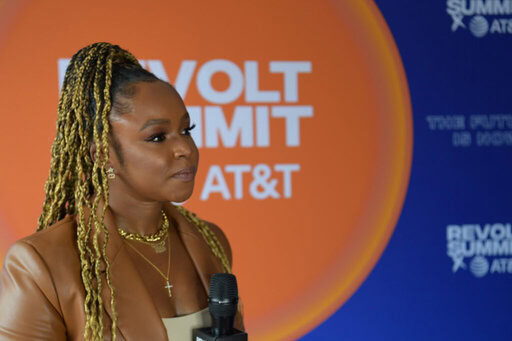
“I learned how to take up space. I learned how to recover because it’s nothing like messing up on camera and hearing 15,000 people say ‘ugh,’” she says. Throughout her time in the arena, she learned a three-prong plan for her journalism: take up space, recover, and cancel the noise.
“You can be having the best game ever and you miss that open three at the end of the game and everybody thinks you’re the worst person in America,” Peppers says. For her, the national broadcasts of mistakes and the sudden criticism that everyone feels entitled to are analogous to how both the media and life can unfurl. “You have to deal with all the noise for that. What do you do for the next game? You suit up.”
This strategy of bouncing back in moments of defeat followed her. In 2020, COVID-19’s chilling pandemic left entertainment journalists shuttered away in their homes without a bulk of their work that depended on in-person coverage. In this isolation, Peppers — like the rest of the world — found herself overlooked, wrestling with the thought that all her work had been in vain.
As she was cleaning out her phone one day, she stumbled upon a video. “This is Gia Peppers … she went down to the newsroom today. She said she wants to be a broadcaster,” her father says to two-month-old Gia in the decades-old footage. As she watched the video, a wave of consolation swept over her.
“It had been almost 30 years to the day that my dad said that on the video,” Peppers says, assured that it was time to “suit up” yet again. “It was a confirmation that this is bigger than me and I’m doing what God has intended. When my dad said that, he was joking but little did he know that it would end up coming true.”
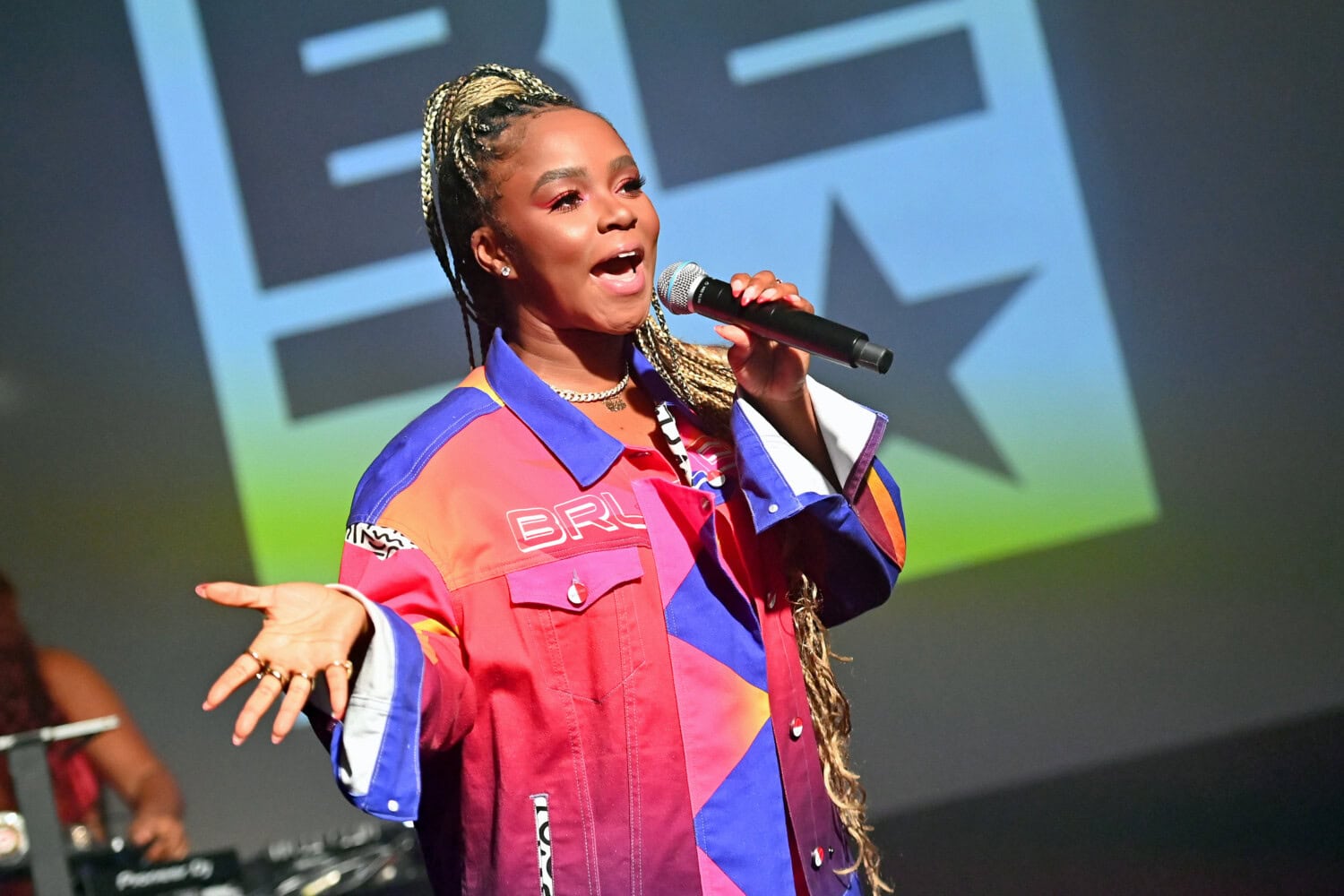
Her Next Act
Now, Peppers is in a liminal space of preparation. She’s currently a host for “Rotation,” the home of Amazon Music’s hip-hop and R&B coverage, and “More than That with Gia Peppers,” her podcast that covers communities for Black millennials. Her next ventures? Storytelling on a larger scale. “I’m sending audition tapes again. I’m in music and voice classes again. I am here to be all that God intended when he thought me up,” she says.
From pitching shows to reviving her love for theater, the next bend on her path is investing in hard work ahead of the reward. “My mindset is to meet God halfway. I’m doubling down on all I’ve been taught and applying it.”